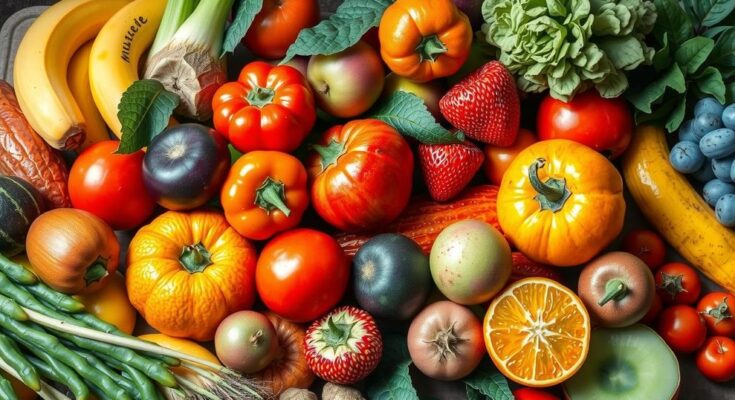COP30 in Brazil has high expectations for transforming food systems in climate discussions. However, food systems, a major contributor to deforestation and emissions, have been overlooked in the agenda. Brazil is taking steps to address these issues but must prioritize the critical role of family farmers and food systems to achieve effective climate action.
The upcoming COP30, hosted in Brazil, has elevated expectations regarding the transformation of food systems within global climate negotiations. However, despite the pressing necessity of addressing food systems—having a significant role in driving deforestation and contributing approximately one-third of global emissions—they have been notably omitted from the agenda set forth by President-designate André Aranha Corrêa do Lago. This oversight not only undermines Brazil’s leadership but also jeopardizes vital forest preservation initiatives.
Countries worldwide are grappling with the repercussions of a dysfunctional food system that exacerbates the climate crisis and threatens food production. This current framework benefits large food corporations at the expense of family farmers, who face economic hardships amidst rising food prices. The Sixth Assessment Report by the Intergovernmental Panel on Climate Change unequivocally states that climate change threatens food security and will increase pressure on food access in vulnerable regions.
Agriculture contributes approximately 30% of anthropogenic emissions and accounts for up to 80% of tropical deforestation, making it a key actor in addressing climate change. Therefore, achieving the goals outlined in the Paris Agreement necessitates substantial emission reductions from agriculture and land use. Conversely, the agricultural sector also presents significant opportunities for emission reductions, with practices such as agroforestry and sustainable fertilization possibly mitigating up to 12 billion tonnes of carbon dioxide annually.
Brazil is taking measures to confront these challenges, having launched initiatives such as the Global Alliance Against Hunger and Poverty during its G20 presidency. It also co-founded the Alliance of Champions for Food Systems Transformation at COP28 and is set to initiate the Tropical Forests Forever Facility. Nevertheless, if COP30 neglects the integral relationship between food systems and deforestation, it risks merely addressing superficial symptoms.
COP30 President do Lago has underscored the necessity of prioritizing adaptation in climate discussions, highlighting the crucial role of family farmers in global supply chains and food security. Unfortunately, such farmers typically lack the necessary financial resources and political support to implement sustainable practices. In 2021-22, only 14% of international climate finance for agriculture and land use was directed toward small-scale farmers.
To remedy these issues, Brazil’s President Lula da Silva launched the National Plan for Agroecology and Organic Production, aimed at enhancing the resilience of family farmers. COP30 must effectively translate commitments into actionable strategies, particularly concerning food and farming. Fundamental steps include establishing a roadmap for sustainable agricultural practices aligned with the Global Stocktake goals, and creating measures to revert forest degradation by 2030, focusing on agriculture, mining, and infrastructure.
As nations prepare to submit new action plans (NDCs) by September 2025, these must incorporate specific targets and funding dedicated to transforming food systems. With over 150 countries committed to the Emirates Food Systems Declaration at COP28, impactful measures for reducing emissions and prioritizing farmers will be essential. Furthermore, bridging the climate finance gap is crucial, as Brazil advocates for wealthier nations to assist developing countries in adapting and transitioning to sustainable agriculture.
Ultimately, this is a crucial time for global leaders to invest in a sustainable food system that achieves national priorities. A reformed system that improves nutrition, adequately compensates farmers, and enhances productivity could yield economic benefits of $5 to $10 trillion annually. With its expertise in tackling hunger and managing the Amazon, Brazil is well-positioned to lead a revolutionary shift in food systems at COP30, representing both an ecological necessity and an economic imperative.
The COP30 conference in Brazil presents a pivotal opportunity to address the critical role of food systems in the global climate crisis. With agriculture being a major contributor to emissions and deforestation, it is imperative that these issues are prioritized in the climate negotiations. Successful transformation of food systems can provide substantial economic benefits while also ensuring food security and environmental protection, making this an essential focus for global leaders moving forward.
Original Source: www.climatechangenews.com




